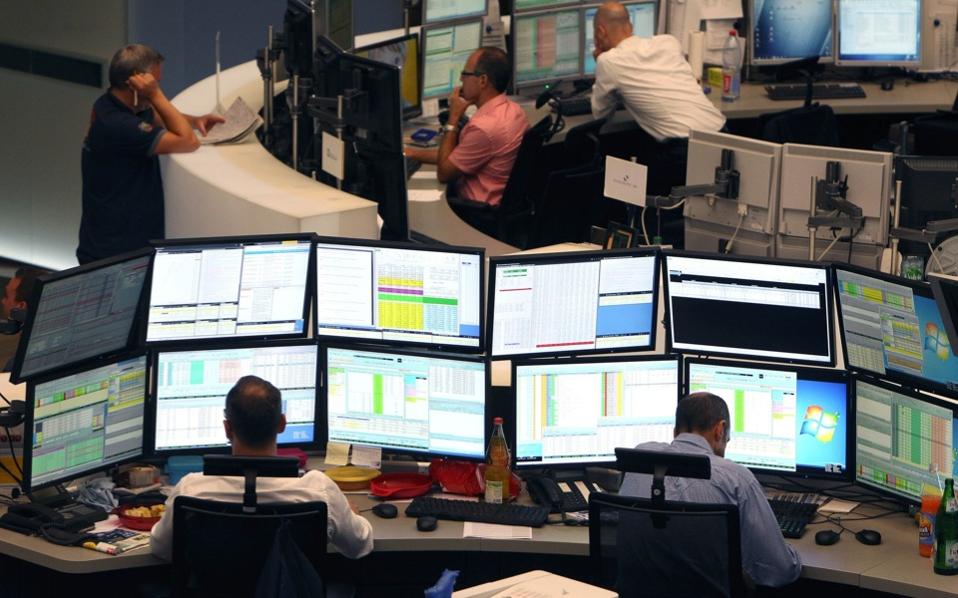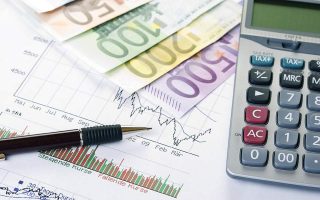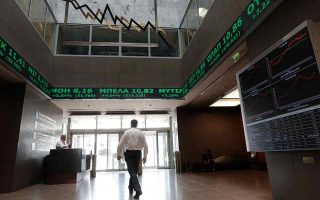Further debt easing may come later, economists tell Kathimerini

Estimates pointing to a deep recession in Greece this year and a steep rise in the national debt as a result of measures to contain the coronavirus pandemic are generating questions about what will happen once the crisis subsides and raising new debt sustainability concerns. Economists asked by Kathimerini stress that Greece is armed with weapons it did not have before.
Markets and investors realize that no one is immune from the crisis and there is no alternative to an increase in countries' debt, Wolfango Piccoli, co-president at Teneo Intelligence, tells Kathimerini. He estimates that the fiscal data of countries and any rating downgrades will only become the focus of interest once the world puts the pandemic behind it.
“For now there are no major concerns over Greece. If the debt index rises from 185 percent to 200 percent [of the gross domestic product], it does not make much difference, and there will be new sustainability analyses whose results will depend on what data (e.g. GDP course) will be taken into account,” says Piccoli.
The days after the pandemic will also be important regarding Greek banks: The pandemic has already frozen the Hercules asset protection scheme, it has put off securitizations to 2021 and estimates about a new general of nonperforming loans (NPLs) are growing. Piccoli argues that the big issue for Greece could be the NPLs: If they grow considerably and lead to new concerns on the capital position of banks, this would be the main risk the government may need to face.
Economists do not rule out a further easing of the Greek debt by Europe if the situation deteriorates. Zsolt Darvas, Senior Fellow at the Brussels-based think tank Bruegel, says that “as regards Greek fiscal position, the International Monetary Fund expects a 9 percent budget deficit this year and 8 percent in 2021. The key question is, how this emerging large deficit will be financed. Greece will probably draw on its cash reserves, I advise it to use the new EU lending facilities approved by finance ministers: the ESM’s new Covid-19 credit line which can amount to 2 percent of gross domestic product, and the new employment support lending facility called SURE.
“Yet drawing down cash reserves and borrowing from these new official facilities is not likely to cover the increased borrowing needs resulting from the large budget deficit, and thereby Greece will have to issue more debt on the market,” says Darvas.
He adds that it was a wise decision by the ECB to include Greece in its expanded bond-buying program, “but even that might not be enough to stabilize Greek bond markets when the full extent of the economic collapse becomes clear. I expect that eurozone partners will offer further debt relief to Greece later this year.”
The Greek economy stands to suffer most among the European countries, as it depends to a great extent from tourism, argues Holger Schmieding, Chief Economist at Berenberg Bank: “The fall in real GDP could be at least 10 percent this year. In addition, the likely fall in GDP and the surge in the fiscal deficit will raise the debt-to-GDP by at least as much as the IMF projects.”
However “on the positive side, the Greek government enjoys the trust of its European partners and of markets, most of the currently outstanding debt is held by official creditors who have granted Greece very lenient terms, and the ECB has included Greece in its asset purchase programs. In addition, the very slow rise in recorded infections may suggest that Greece is containing the spread of the virus well. However, the still low number of tests in Greece makes it difficult to judge that. Because Greece‘s political will to stay in the EU and the euro does not seem to be in doubt, I do not expect Greece to be frozen out of funding markets,” Schmieding tells Kathimerini.
Carsten Brzeski, Chief Economist, Eurozone and Global Head of Macro for ING Research, notes that the outcome of this crisis “will depend on the political will, as currently illustrated in the discussion on Italy and Coronabonds. In my view, the northern European countries have no interest at all in getting a euro crisis now on top of the corona crisis. When push comes to shove, they will show solidarity. Even if this might not be through Corona bonds.”
He projects that “in the longer run, a new divergence of economic activity combined with high debt ratios will bring back the fundamental discussion on the right policy prescription in the eurozone. In short: austerity and structural reforms versus fiscal spending, ECB support and debt mutualization or write offs. This is what the next crisis will be all about. Either the northern countries accept debt mutualization through the back door, ie the ECB, or they will have to agree on some kind of transfers, mutualization or write downs. This discussion and the clash will come but it is impossible to tell when.”
On Greece in particular, ”we don't have any projections for its debt currently, but our growth projections are somewhat more favorable than the one of the IMF. We see Greece at some -8 percent this year. Although I have to admit that all growth projections have to be taken with a large pinch of salt. We simply don't know.”
“As a consequence of the contraction, an increase in the debt-to-GDP ratio is unavoidable and will bring back speculations about Greece's debt sustainability. At the same time, as long as the ECB is in the market, and remember that the ECB announced to buy Greek debt, and there is access to an ESM loan with very mild conditions attached, I think that this should not be a return of the crisis,” he concludes.





